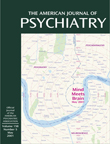Dr. Stotland Replies
To the Editor: Drs. Weaver, Larson, and Stapleton correctly note that we continue to struggle with traditions that lead some psychiatrists to pathologize victims of domestic violence and some clergy to counsel them in obedience and resignation. Mental health professionals and clergy share a tendency to approach the problem, in individual cases, by advising counseling for the perpetrator. This is not our first line of thinking when someone commits an assault on a stranger.
Couples counseling exposes the victim who airs his or her concerns about the violence to retribution after the counseling session. Individual counseling of the perpetrator does not communicate the message that the violence is unacceptable and, at worst, may provide psychological rationalizations for it. Anger management programs are one manifestation of this approach, failing to acknowledge that perpetrators of domestic violence generally are able to control their anger in other social and employment situations. This is one reason law enforcement officials and others sometimes have difficulty believing that they are capable of violence. Domestic violence is not a matter of losing control over one’s anger but of gaining control over one’s victim. Psychiatrists and members of the clergy have a great deal to learn and to teach each other about this long-misunderstood and long-ignored social tragedy.



